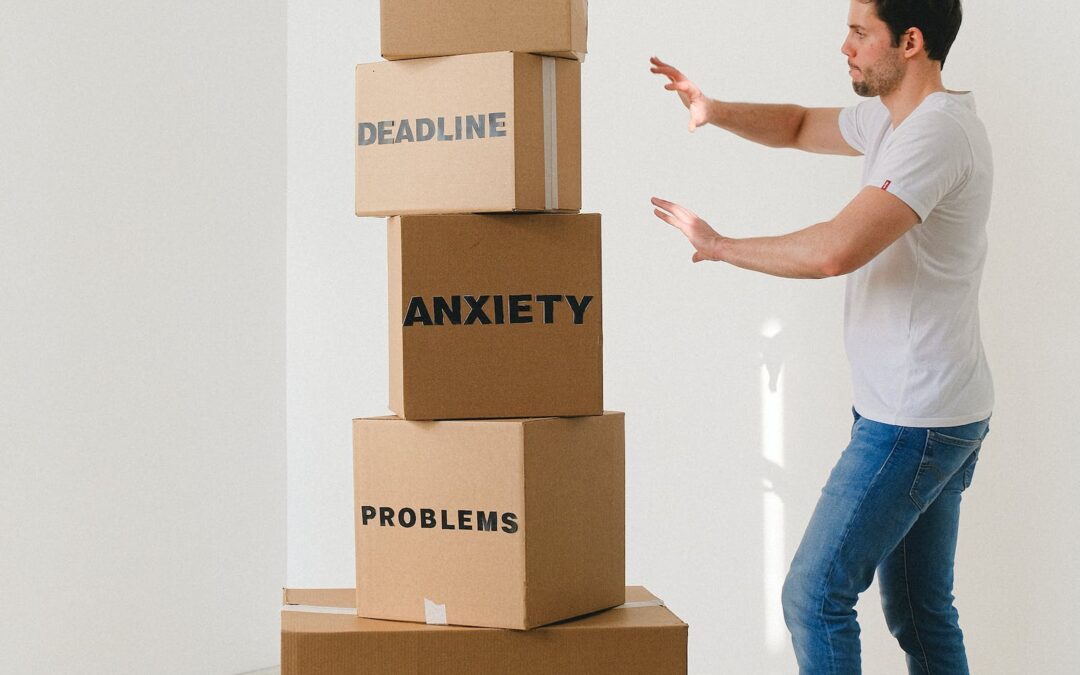Stress is something we all deal with now and again. A small amount of stress from time to time is nothing to be concerned about. But if you are exposed to chronic stress regularly, it can affect everything in your life – physically and mentally.
Stress can make you sick
Ongoing chronic stress and overwhelm suppress your immune system making you susceptible to disease and illness. Stress triggers a rise in the production of cortisol. Preparing your body to enter “fight or flight” mode, ready to defend itself against a threat.
If your body is perpetually stuck in a fight-or-flight loop, your body becomes exhausted, unable to defend itself against things like colds and flu, which open the door to other health threats.
During chronic stress, cortisol levels are at an all-time high every day. In the long run, high cortisol levels can contribute to a wide range of health issues, illnesses and diseases. Including hair loss, eating disorders, IBS (Irritable bowel syndrome), diabetes, heart problems, and even cancer.
Signs that you are stressed
If you experience two or more of these symptoms on a daily basis, you may need to reassess and manage your levels of stress.
- Insomnia
- Sensitive skin and skin complaints such as acne and eczema
- Back-to-back colds and flu
- Exhaustion – but often unable to sleep
- Lethargic – just want to sleep all the time
- Irritability
- Unable to make a decision
- Gastrointestinal problems
- Rapid heart rate
- Your mind feels like it is racing all the time
Navigating stress
Stress is one of those things that can quickly snowball out of control, leaving you feeling completely overwhelmed and unable to function in all areas of your life. But, it can also snowball in reverse and be managed quickly and effectively.
Ways you can start managing your stress levels
- Speak to a therapist, counsellor, transformation coach or trusted friend to get perspective on the situation and environment that is causing stress. Identify the root causes and make a plan for where changes can be made
- Do some exercise every day. Get some fresh air, go for a walk, dust off your bike, go to a yoga class, smash some balls on the squash court – whatever gets you out of your head and your environment every day. Exercise releases endorphins and helps to reduce cortisol levels
- Skip the sugar and caffeine even if it is just during the week and replace it with water, herbal teas and with smoothies. Sugar and caffeine cause crashes and cravings – two things you don’t need when you are trying to balance your stress levels
- Leave the booze. If you have found yourself in the habit of rewarding or consoling yourself with a drink after another hectic day, break the chain. Change things up and go out for a walk or a cycle and blast some fresh air into your brain
- Make healthy food choices. Think about food as fuel. While a packet of crisps and a nice hot pie washed down with a coke will tick the lunchtime box, it will not provide you with the fuel you need to navigate a stressful afternoon.
Sugar, processed foods, and fat make you feel lethargic. When the sugar buzz wears off, leaving you in a mid-afternoon slump. Fuel up with fruit and veggies in a nutrient-rich power-packed lunch that will help you manage your day.
The consequences of long-term stress can be very detrimental to your physical health. It can do long-term damage to organs such as your heart, liver and digestive system.
Don’t hesitate to connect and reach out to someone. People want to help – the hardest part is asking for it.
If you are struggling with stress and feeling overwhelmed, let’s work together and make a change.
Reaching out is the first step in finding your purpose.
I would love to hear from you.
https://purposefullife.com.au/contact/

